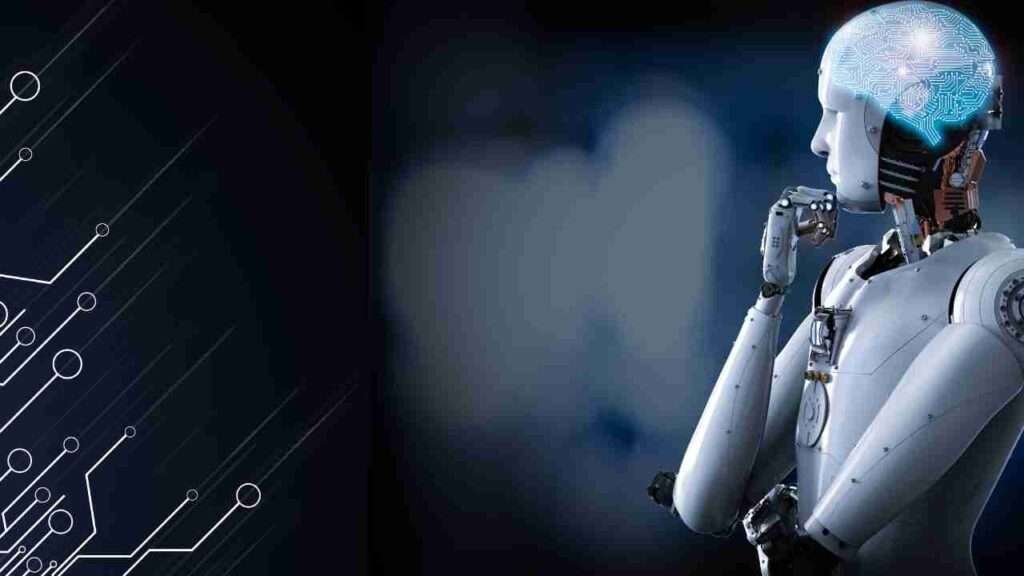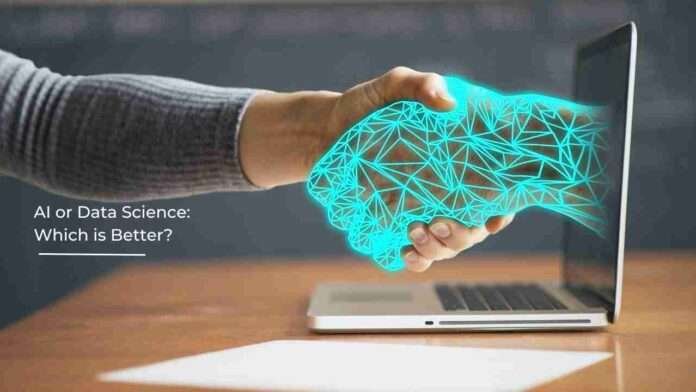In today’s technology-driven world, Artificial Intelligence (AI) and Data Science are two of the most sought-after fields. Both offer promising career paths, exciting innovation potential, and significant impact across industries. But when it comes to choosing a field, many wonder: Which is better, AI or Data Science?
Thank you for reading this post, don't forget to subscribe!In this blog, we’ll break down the key differences, applications, and career opportunities to help you decide which field might be a better fit for your future.
What is Artificial Intelligence?
Artificial Intelligence (AI) refers to the simulation of human intelligence in machines that are programmed to think, learn, and solve problems. AI technologies aim to automate tasks that require human cognitive abilities. The key subfields of AI include:
- Machine Learning (ML): Algorithms that allow computers to learn from data.
- Natural Language Processing (NLP): Enabling machines to understand human language.
- Robotics: AI-driven machines capable of performing physical tasks.
AI is widely used in virtual assistants like Siri and Alexa, autonomous vehicles, and recommendation systems like Netflix’s personalized suggestions.
What is Data Science?
Data Science is a multidisciplinary field that focuses on extracting meaningful insights from data. It combines statistical methods, data analysis techniques, and machine learning to identify patterns and trends that can help businesses make data-driven decisions. Key components of Data Science include:
- Data Collection & Cleaning: Preparing raw data for analysis.
- Statistical Analysis: Using statistics to interpret data trends.
- Machine Learning: Applying algorithms to predict future outcomes.
Data Science is applied in various industries, from healthcare predicting patient outcomes to retail companies optimizing supply chains based on historical data.
Key Differences Between AI and Data Science
Though AI and Data Science overlap, they are fundamentally different. Here’s a closer look at their distinctions:
- Data Processing: AI relies heavily on data science to train and optimize its models. However, AI’s end goal is to create systems that can perform complex tasks autonomously. In contrast, Data Science is more focused on analyzing and interpreting data to provide actionable insights.
- Goal: The primary goal of AI is to create machines that can mimic human intelligence and solve complex problems. On the other hand, Data Science aims to extract value from data through advanced analytics.
- Skills Required: Both fields demand a solid foundation in coding and statistics. However, Data Scientists need a deep understanding of data manipulation, statistical modeling, and data visualization. AI professionals require strong expertise in algorithms, machine learning, and sometimes deep learning.
- Tools & Technologies: AI development often involves frameworks like TensorFlow, PyTorch, and Keras. In contrast, Data Scientists commonly use programming languages like Python, R, and tools like Pandas, Scikit-learn, and SQL to handle and process data.
Career Opportunities in AI

The field of AI offers various roles such as:
- AI Engineer
- Machine Learning Scientist
- Robotics Engineer
AI professionals are in high demand, especially in sectors like healthcare (for diagnostic systems), automotive (for autonomous vehicles), and finance (for fraud detection). With industries increasingly adopting AI technologies, the need for AI experts is only growing. The average salary for AI roles tends to be high, reflecting the advanced skillset required.
Career Opportunities in Data Science
In Data Science, professionals take on roles like:
- Data Scientist
- Data Analyst
- Data Engineer
Data Science has become vital in industries like marketing, where businesses use data to understand customer behavior, and healthcare, where data is used for predictive analytics. With a strong demand for data-driven decision-making, the demand for Data Scientists remains robust, and the compensation reflects the value they bring to organizations.
Which is Better: AI or Data Science?
Choosing between AI and Data Science largely depends on your personal interests and career goals. If you’re passionate about developing intelligent systems, AI might be your calling. However, if you enjoy working with data to discover hidden insights, Data Science could be a better fit.
Both fields are evolving rapidly, but AI tends to be more focused on innovation and cutting-edge technologies, while Data Science emphasizes analytical and business skills.
Here are a few factors to consider:
- Growth potential: AI is expanding rapidly, but Data Science continues to be an essential component in most industries.
- Required skills: AI may require more in-depth technical knowledge of algorithms and neural networks, while Data Science emphasizes data analysis and business insights.
Ultimately, neither field is strictly “better.” It depends on what excites you most and where you see yourself thriving.
Conclusion
Both AI and Data Science offer dynamic career paths with ample opportunities for growth. If you’re interested in creating intelligent machines, AI might be your best bet. However, if you prefer using data to drive decision-making, then Data Science could be the right choice.
FAQs
1. Can I learn both AI and Data Science?
- Yes, you can learn both AI and Data Science! In fact, these fields often overlap, and many professionals find that knowledge of both areas strengthens their career prospects. For example, AI heavily relies on data for training models, so having data science skills can be beneficial in AI roles.
2. Is Data Science a prerequisite for learning AI?
- Data Science is not necessarily a prerequisite for AI, but having a solid foundation in data analysis and statistics can be helpful. Many AI models require large datasets for training, and understanding data handling will provide a strong foundation for success in AI.
3. Which has more career opportunities, AI or Data Science?
- Both fields offer a wide range of career opportunities. AI is more specialized and in demand in sectors like robotics, healthcare, and autonomous systems, while Data Science is more versatile, with applications in nearly every industry, including marketing, finance, and retail. The choice depends on your specific career interests and expertise.
4. What are the top skills needed for a career in AI?
- For a career in AI, you need strong skills in:
- Machine Learning algorithms
- Programming languages like Python or Java
- Deep Learning frameworks (e.g., TensorFlow, PyTorch)
- Mathematics and statistics
- Problem-solving and analytical thinking
5. What are the top skills needed for a career in Data Science?
- Data Scientists typically need expertise in:
- Data analysis and data manipulation
- Statistical modeling and hypothesis testing
- Programming languages (e.g., Python, R, SQL)
- Data visualization tools (e.g., Tableau, Power BI)
- Machine Learning techniques for predictive analysis
6. Is AI harder to learn than Data Science?
- AI tends to be more algorithmically intensive and involves understanding complex models like neural networks and deep learning. On the other hand, Data Science requires a balance of statistics, business understanding, and coding. Both can be challenging, but which is harder depends on your background and interests.
7. Which has a better salary potential: AI or Data Science?
- AI professionals generally have higher salary potential due to the specialized nature of the field, with roles like AI Engineers and Machine Learning Scientists often earning premium salaries. Data Science also offers competitive pay, especially for experienced Data Scientists, but salary can vary based on industry, location, and role.
8. How long does it take to become proficient in AI or Data Science?
- It can take anywhere from 6 months to 2 years to become proficient in either field, depending on your prior experience and the depth of knowledge you’re aiming for. AI may take longer to master due to the complexity of algorithms and models, while Data Science often focuses more on practical applications, which may be quicker to grasp for some.
9. Are there free resources to start learning AI or Data Science?
- Yes, there are plenty of free resources available! Websites like Coursera, edX, and Kaggle offer courses on AI and Data Science. Additionally, platforms like Google AI and Fast.ai provide free tutorials and learning paths for beginners.
10. Which is more future-proof: AI or Data Science?
- Both fields are integral to the future of technology. AI is driving automation and the creation of intelligent systems, while Data Science will continue to be essential for data-driven decision-making. Both fields are expected to grow, but AI is leading in terms of cutting-edge innovation, while Data Science remains critical for business analytics and strategy.
Read More – Conde Nast Signs Deal With OpenAI A New Era in AI-Powered Content Creation



